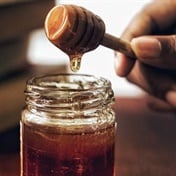New research suggests that you should steer clear of using ordinary spoons when taking or giving liquid medicines, because the practice raises the risk of potentially dangerous dosing mistakes.
"Clearly we know that there are a lot of people -- despite all the alternatives they are offered -- who open the kitchen drawer and grab a spoon to serve up their liquid medicine," observed study co-author Koert van Ittersum, an assistant professor of marketing in the College of Management at Georgia Institute of Technology in Atlanta.
"But previous work has already shown that the size of your mug or glass influences how much one pours," he noted. "Just as the size of a plate influences how much one eats. So, here we have found that utensils also have an effect on dosing because our mind plays tricks on us. And so spoon size matters."
The findings from van Ittersum and his colleague, Brian Wansink of Cornell University, are published as a letter in the Annals of Internal Medicine. The authors point out that the US Food and Drug Administration already cautions against the use of any kitchen utensil for measuring liquid medications.
How the study was done
To gauge the potential for incorrect dosing, the researchers tracked the dosing behaviours of 195 college students who had visited a university health clinic around the time the study was launched.
Each student was first asked to pour out exactly five millilitres of a liquid cold medicine, using a normal-sized teaspoon so they could clearly visualize how much that amount would be.
Following that exercise, each participant was randomly asked to attempt two more medicine pours: one into a medium-sized tablespoon and a second into an even larger spoon. Confidence levels were assessed to see how secure the students were in their ability to correctly pour the proper dosage.
Despite the fact that most students had "above average" confidence that they had poured accurate doses while using one or the other tablespoon, the authors found that dosages actually varied depending on the size of the spoon.
What the study found
When using the medium-sized tablespoon, the students under-dosed by more than 8%, on average. And when using the larger tablespoon, they overdosed by nearly 12%, on average.
The researchers concluded that if even well-educated individuals make mistakes after having essentially been trained to pour correct dosages into a spoon, then anyone -- even experienced pourers, such as nurses or care-giving parents -- run the risk for making similar dosing errors.
The authors therefore strongly encouraged patients and caregivers alike to stick to more reliable dosing instruments, such as measuring caps or droppers, dosing spoons and/or dosing syringes when administering liquid medicines.
"The bottom line is that there are certain cues in our environment that have a huge impact on our behaviour," explained van Ittersum. "So in this case, you have an idea in your mind of what the right dosage should be, but when given an inappropriately sized spoon, you end up pouring to compensate for the mismatch, and that ends up meaning you are likely to overcompensate or under-compensate, which will mean that you will not end up consuming the proper dosage," he added.
"Now cough medicine, for example, taken in doses that are too much or too little one time is not going to kill you," he acknowledged. "But if you're really sick and you're doing this over an extended period of time it can really add up, and may have real consequences. Particularly for children."
So, van Ittersum said, "this is a situation in which sometimes we are our own worst enemy. And so I would say that regardless of the fact that it's sometimes very tempting to go to the drawer and just simply use a spoon, don't do it. Use the measuring devices that are specifically designed to help measure accurately."
Sarah Butler, a registered nurse and diabetes education director for the National Association of School Nurses (NASN), said she "certainly agrees that patients should definitely not be using spoons to measure their medicines."
Furthermore, NASN President Sandi Delack said in a statement that "since it's essential that liquid medications are measured accurately to ensure proper dosage, school nurses welcome the use of measuring devices provided by the pharmacy or contained in the medication packaging." - (HealthDay News, January 2010)




 Publications
Publications
 Partners
Partners















